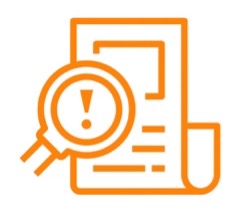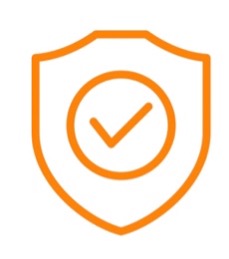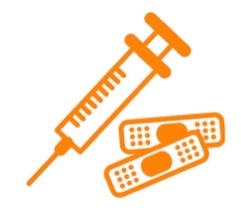
Vaccine misinformation is rampant and not all sources of vaccine information online and in our communities are created equal and reliable. This misinformation can spread quickly through social media and other online platforms, making it challenging to discern fact from fiction. For families and loved ones making important health decisions, it’s crucial to know how to find reliable sources of information.
Vaccine misinformation can lead to decreased vaccination rates, which in turn can result in the resurgence of preventable diseases. When seeking health information, especially about vaccines, consider the following steps to ensure the information is credible:
a. Your trusted healthcare provider. Healthcare professionals are some of the most influential and trusted sources of information in a parent’s decision to vaccinate their children, or in adult’s decision to vaccinate themselves.
b. Your local CRNN! See the Teams page for a list of CRNNs throughout TN who are readily available to connect with you and provide reliable information about your family’s health decisions, including vaccination. And stay tuned to this website for digital resources that are coming soon to a community near you!
c. Government health departments (e.g., TN Department of Health Vaccine-Preventable Diseases and Immunization Program, your local health department, CDC, WHO)
d. Medical institutions (e.g., Mayo Clinic, Johns Hopkins Medicine, Vanderbilt University Medical Center, Monroe Carrell Jr. Children’s Hospital)


Vaccines are not only safe and effective, but they are one of the greatest success stories in public health. Vaccines have been instrumental in preventing diseases and saving lives for over two centuries, including the eradication of smallpox and near elimination of the wild polio virus. Understanding the history, safety, and effectiveness of vaccines is crucial for appreciating their role in public health.
You can learn more about the history of vaccines in the U.S. and how the safety process works at this link.
Vaccine Hesitancy
Despite the success of vaccines, some still have concerns about their safety and effectiveness. Vaccine hesitancy is a term heard often in today’s conversation around vaccination. There are many reasons why hesitancy has become common, including the prevalence of misinformation around vaccines, increased reliance on unvetted health information from social media and less trust in health institutions to provide timely and accurate health information among others. Some common concerns include fears about side effects, ingredients, and the speed of vaccine development. It’s important to address these concerns with facts from reliable sources.
Use the resources provided on this page to find reliable information about vaccines, and talk with your local CRNN, or your trusted primary care provider to have a thoughtful conversation about vaccines and their role in keeping you and your loved ones healthy and safe.


Vaccines are an essential part of preventative health care strategies across your lifespan. From pediatric vaccination schedules to necessary vaccines for adults and the elderly, all people should be empowered with reliable information about recommended vaccines throughout their lifetime to make informed decisions.
Childhood Vaccine Schedules & Resources
Parents make endless decisions about their children’s lives from where they live, to what school they will attend, to what extracurricular activities they will participate in. Vaccinations are a way for parents to be empowered to ensure their children have the best opportunity to grow into healthy young adults. You can’t control what diseases your child is exposed to, or how bad a case he or she might get. Vaccinating your child against infectious diseases guards against the threat these unpredictable diseases pose once they get into your child’s body.
Below are several great resources online to help you make informed vaccination decisions for your children and family. If you find yourself overwhelmed by the information or have questions/concerns, take those concerns to a trusted health care provider or community health representative, like our CRNNs, for guidance and advice.
- American Academy of Pediatrics “All About the Recommended Immunization Schedules”
- CDC’s “Vaccines for Your Children by Age”
- CDC’s “Childhood Vaccine Quiz” – Answer a few quick questions to get a list of vaccines your child may need.
Adult Vaccine Schedules and Resources
Vaccinations are often discussed in reference to children, but there are many vaccines that adults need across their lifetime to protect against many diseases and infections. It can be hard to keep up with what vaccines children and adults should have and when, which is why it is important to have regular conversations with your trusted health providers to stay on track with vaccination schedules. Staying informed about the vaccines you need throughout your life is essential for maintaining personal health, protecting loved ones, and contributing to the overall well-being of the community.
There are several reasons why it is important to stay informed about the vaccines you need at different stages of life:
- Diseases that vaccines can prevent aren’t limited to childhood. Adults can still contract illnesses like influenza, pneumonia, shingles, and whooping cough. Keeping up with recommended vaccines helps protect you from these serious health risks.
- Immunity from some childhood vaccines can diminish over time. Booster shots are necessary to maintain protection against diseases such as tetanus, diphtheria, and pertussis.
- As we age, our health risks change. For example, older adults are more susceptible to illnesses like shingles and pneumococcal disease. New vaccines may also become available to protect against emerging health threats. Keeping up-to-date ensures you benefit from the latest advancements in vaccine science.
- Vaccinating yourself helps protect those around you, including infants, elderly family members, and those with weakened immune systems. Herd immunity plays a critical role in preventing the spread of contagious diseases, safeguarding the entire community.
- Certain vaccines are recommended or required for travel to specific countries or for certain occupations. Being informed ensures you meet these requirements and stay healthy while working or exploring the world.
Adult Vaccination Assessment Tool
One resource to help you identify what vaccines you may need as an adult is the CDC’s Adult Vaccination Assessment Tool. By answering a few questions, you will get a list of vaccinations you may need based on your answers that you can discuss with a trusted health care provider to make a plan to get up-to-date on your vaccination schedule.
You can find out what adult vaccinations you may need based on your age, health conditions, job, lifestyle, or travel habits on the CDC’s online resource “Vaccine Information for Adults.”

